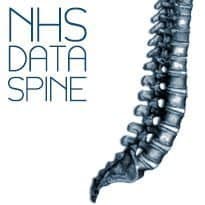North Staffordshire OrQestrates PDS data
- 18 April 2011
University Hospital of North Staffordshire NHS Trust has become the first acute trust to access the Personal Demographics Service from its legacy system via Quicksilva’s integration tool.
North Staffordshire is the pilot site for Quicksilva’s orQestra Spine Mini Service, which is based on the recently published NHS Interoperability Toolkit Spine Mini Services specifications.
Previously, the trust had been using monthly the DBS Batch Tracing process, which Quicksilva said limited the efficiency with which patient data could be updated.
Rebecca Gallimore, deputy head of ICT at UHNS, said that like many acute trusts the hospital was not directly connected to the PDS database.
She added: “The orQestra Spine Mini Service has the potential to deliver real benefits for UHNS, and for the GPs we work with.
“In stage one of the roll-out, we have begun removing the process of updating data in the trust’s PAS via the DBS with a daily upload from Spine Mini Service from Quicksilva. This has significantly reduced the workload required to manually update patient records.”
Gallimore said the aim was to have a fully integrated, real-time solution that would electronically update the trust’s PAS from the Spine Mini Service, ensuring that data was consistent across the local health economy.
Gaynor Hart, managing director of Quicksilva, told E-Health Insider that she expected the trust to be using the fully-integrated solution by the end of the year. She said a second pilot site was not far behind.
She added: “We are seeing a lot of interest in this because it gives trusts cost savings in time and streamlines the system without having to replace their PAS. It also gives trusts time to see where the market is moving.”
Hart said she believed the majority of acute trusts in England were currently unconnected to the PDS and said benefits would be seen both within trusts and by GPs who would be able to gain from PDS updates made in hospital.
She added: “Incorrect demographic information is a serious problem for frontline NHS staff as identification errors can have serious implications on the treatment of patients.
“It is absolutely essential for organisations like UHNS, that records held across all levels of healthcare workers are authoritative and regularly updated, especially as patients are transferred between hospitals, doctors’ surgeries and clinics.”
Hart said she believed there could be a tendency to overcomplicate NHS IT programme deliverables and said the orQestra solution offered a simple and effective alternative to other ‘rip and replace’ strategies.
She added: “Rather than offering a ‘one-size-fits-all solution’, orQestra encourages choice as it can work with any existing, planned or future IT system.”




